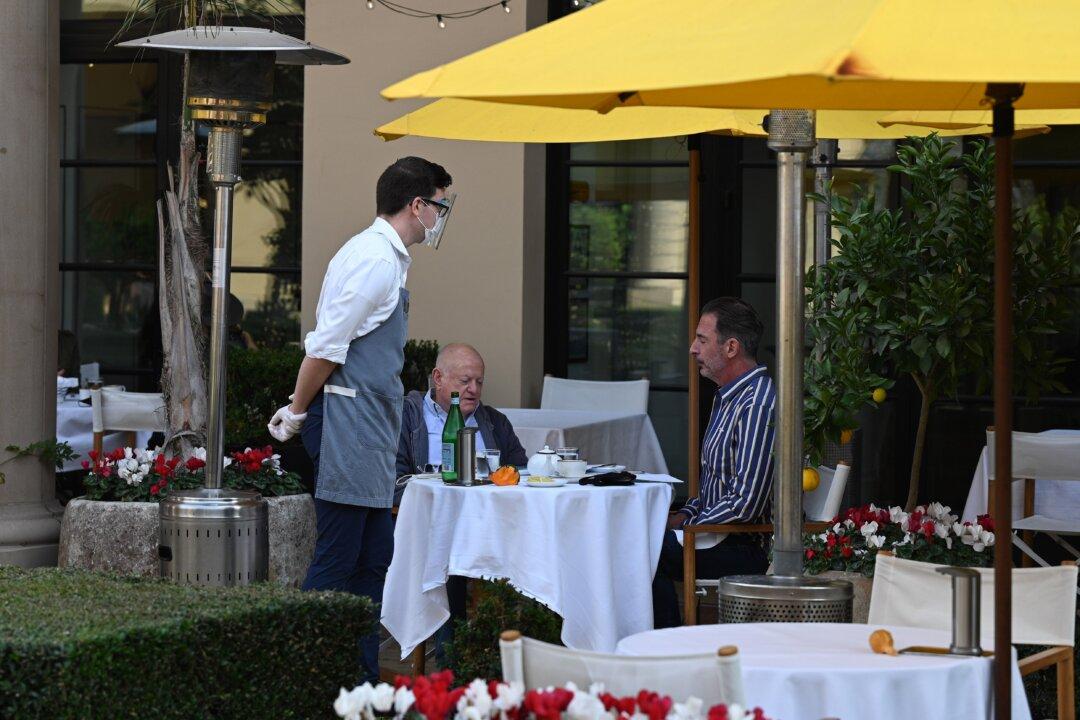Los Angeles County public health officials on Tuesday said they don’t have data to support a weekslong ban on outdoor dining, triggering pushback from supervisors.
Health officials said they believe outdoor eating at restaurants is a place with a high risk of transmission of the CCP (Chinese Communist Party) virus, which causes COVID-19.





